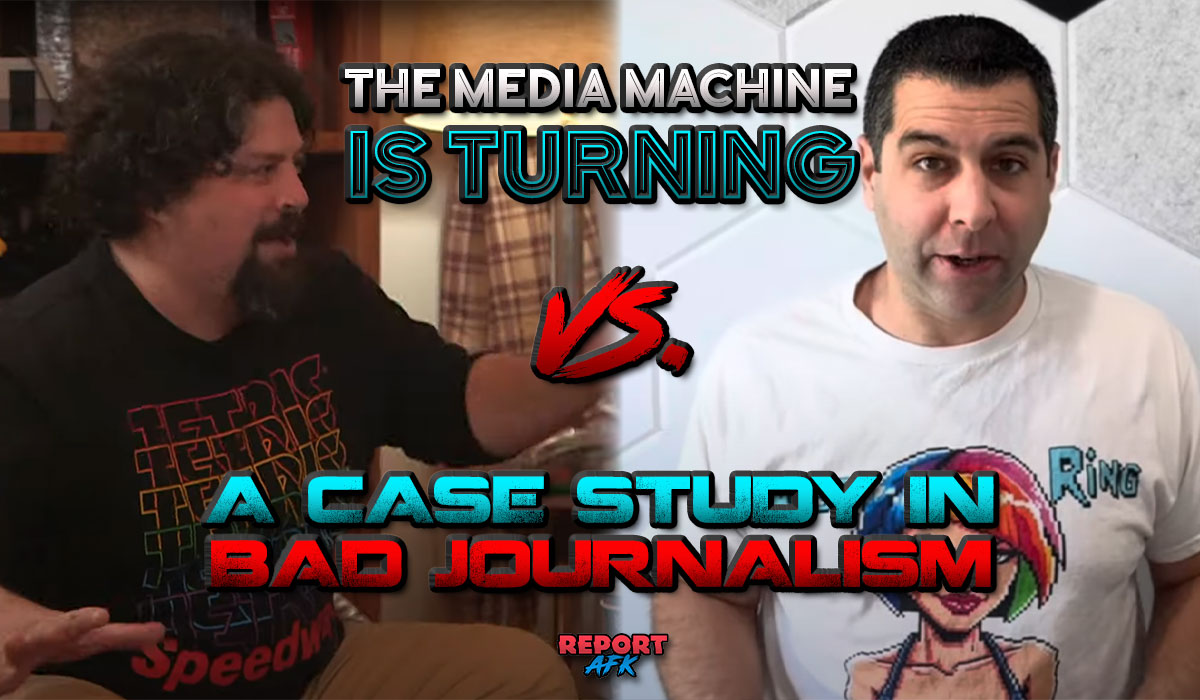
The Broken Gaming Media: A Case Study in Bad Journalism
DramaGaming FailsGaming News 14 358 6 Ayefkay January 17, 2025

In a world where clout is currency and “journalistic integrity” is apparently an endangered species, we have another classic case of the gaming media tripping over its own hypocrisy.
The drama began when SmashJT and industry veteran Mark Kern (aka Grummz) broke the story on smashjt.com about the departure of Corinne Busche, director of Dragon Age: The Veilguard, from BioWare and EA after the game’s spectacular failure.
But instead of a straightforward acknowledgment of their work, the story quickly spiraled into a tangled web of misattribution, gatekeeping, and self-serving “reporting.”
Breaking News or Breaking Bad?
SmashJT posted the original scoop (backed by credible sources) and provided an in-depth breakdown of the fallout at BioWare.
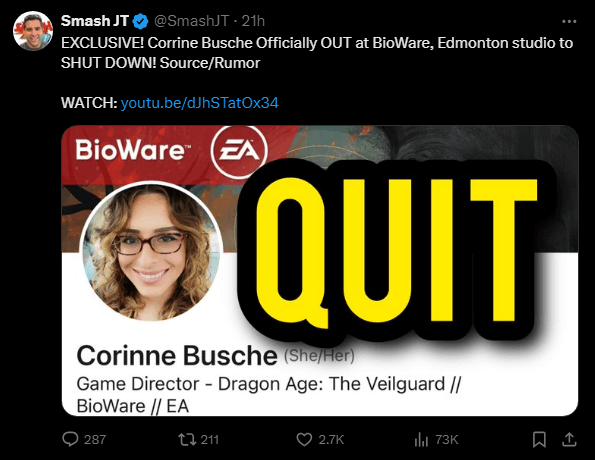
Kern added further legitimacy by sharing his insights, yet hours later, Jeff Grubb of GiantBomb fame-swooped in with a tweet saying, “Corinne Busche, director of Dragon Age, really is leaving BioWare. But I don’t think EA is closing BioWare Edmonton. Was told there is nothing solid about that part of the rumor.”

Now, on the surface, Grubb’s tweet might seem harmless—even helpful. But then, like clockwork, the mainstream gaming outlets (Eurogamer, IGN, PC Gamer, VG247, and others) picked up the story.
Did they credit SmashJT or Mark Kern?
Nope.
Instead, they cited Grubb and, in some cases, credited Eurogamer as if they had done the groundwork.

Image Credit: Eurogamer
It doesn’t take a rocket scientist (or even a particularly good journalist) to see what’s happening here.
These outlets seem unwilling to direct traffic to anyone outside their carefully curated echo chamber. SmashJT’s content is unapologetically independent, and Kern’s views don’t exactly align with the “approved” narratives of the mainstream gaming press.
Giving them credit would be tantamount to admitting that relevant, quality reporting doesn’t have to come from “official” outlets—and that’s apparently a bridge too far.
Jeff Grubb: The Mercante School of Engagement Farming
Adding fuel to the fire, Jeff Grubb’s response to the controversy was… well, let’s just say it didn’t win any awards for humility. When called out for failing to credit SmashJT, he doubled down, tweeting:
“And thanks to everyone who is pointing out that reporting like this is what made me leaker of the year on /r/gamingleaksandrumours.”

And then, in a masterclass of smug self-congratulation:
“OK. OK. Relax. Lots of you are now throwing the word ‘hero’ around, and while I agree that you wouldn’t have ever learned about this story without me, I’ll settle for ‘role model to all people.'”

Let’s not forget that this is the same GiantBomb ecosystem that hosted Alyssa Mercante’s unhinged rant where she declared, “the games industry is diverse naturally, not because anyone is making them be diverse because the world is diverse, you stupid motherf***er. And if you have a problem with that, come fight me, physically, b***h”.
An important message straight from the @giantbomb couch! pic.twitter.com/pSGkzOIeie
— Alyssa Mercante (@alyssa_merc) June 8, 2024
Because she apparently speaks for the gaming industry and definitely didn’t get let go from Kotaku…
…of course, Alyssa made excuses why she couldn’t actually fight anyone that rose to her overwhelmingly frightening challenge, but that surprised absolutely no one as well.
But I digress – Grubb’s posturing isn’t just disingenuous; it’s a slap in the face to anyone who values actual journalism.
The bigger problem is that the media machine rewarded it.
By perpetuating Grubb’s “version” of events, the mainstream outlets effectively erased SmashJT and Kern from the narrative—all to seemingly preserve their own relevance.
Will Gaming Media Ever Learn?
This isn’t just a one-off issue.
It’s part of a broader trend where gaming media prioritizes pandering and social-justice brownie points over accuracy and integrity. And while the Corinne Busche debacle is frustrating, it’s far from the only example.
Let’s take a quick trip down memory lane and revisit the “woke” gaming flops of 2024 that (once notable) gaming outlets tried to elevate and promote:
Dragon Age: The Veilguard – The crown jewel of BioWare’s downfall. Packed with DEI checkboxes and forced activism, this game was so out of touch with its core audience that it practically begged to fail. And fail it did.
Concord – A game so focused on “representation” that it forgot to include anything resembling engaging gameplay. Critics loved it; gamers ignored it.
Suicide Squad: Kill the Justice League – A live-service disaster that prioritized cringe-worthy character “diversity” over coherent storytelling. Shocking no one, it tanked.
Dustborn – Pitched as a “modern tale of resistance,” this game was so steeped in propaganda that players felt like they were being lectured rather than entertained.
Forspoken (though technically late 2023) – Another “modern audience” cash grab that alienated more players than it attracted. From cringey dialogue to uninspired gameplay, it’s a case study in how not to design a game.
Time and again, we see the same pattern: the industry’s obsession with pandering to the mythical “modern audience” while alienating actual gamers.
The result?
A string of flops, plummeting player counts, and studios scrambling to pick up the pieces.
The Divide: Media vs. Gamers
The Corinne Busche situation underscores a growing rift between gamers and the media that claims to represent them.
On one side, you have gamers—the people who actually buy and play the games—demanding quality, creativity, and respect for their intelligence. On the other side, you have the media, doubling down on pandering and self-righteousness while ignoring the needs of their audience.
How long can this go on? At some point, even the most die-hard “modern audience” advocates will have to face reality: gamers aren’t buying what they’re selling. And as the gaming press continues to lose credibility, independent voices like SmashJT.com and Mark Kern will only grow louder.
For now, the gaming media seems content to live in its echo chamber, feeding each other clicks and little back-pat validations while the rest of us roll our eyes.
But if the flops of 2024 have taught us anything, it’s that gamers are tired of being ignored—and they’re not going to stick around for the funsies that follow.
Integrity Matters
Will the media ever learn?
Probably not.
But watching them trip over their own hypocrisy is, at least, some good and funderful entertainment.
So, here’s to another year of gaming flops, journalistic failures, and independent voices proving that integrity still matters—even if the mainstream refuses to acknowledge it.
Want More?
Check These Out Next!
About Report AFK
A place for gamers, by gamers, untarnished by legacy gaming media and their herds of sheeple.
Site Links
Copyright 2025 ReportAFK.com



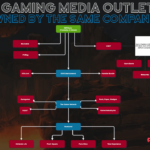
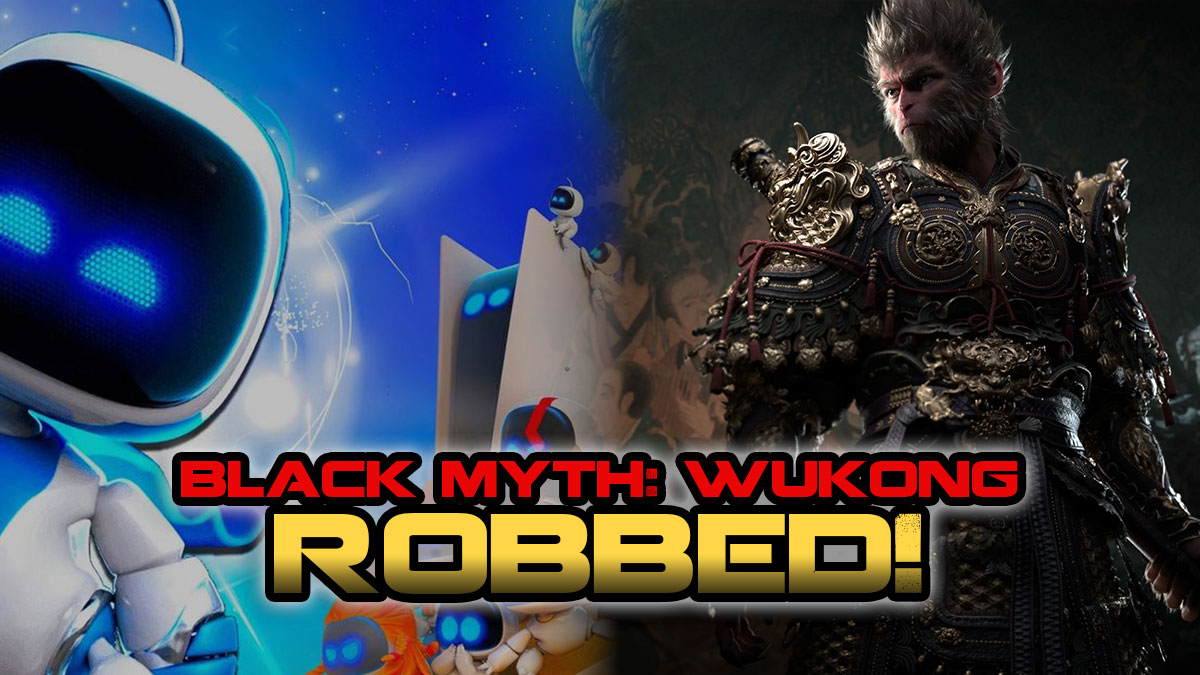
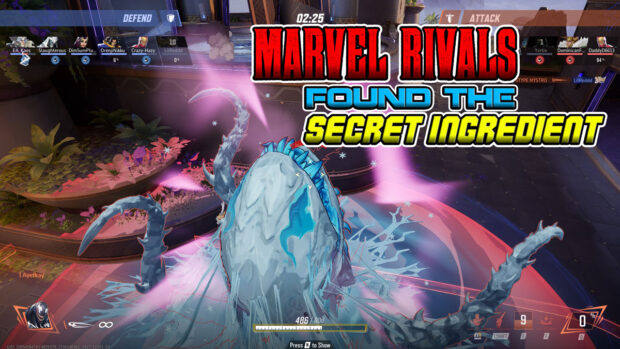
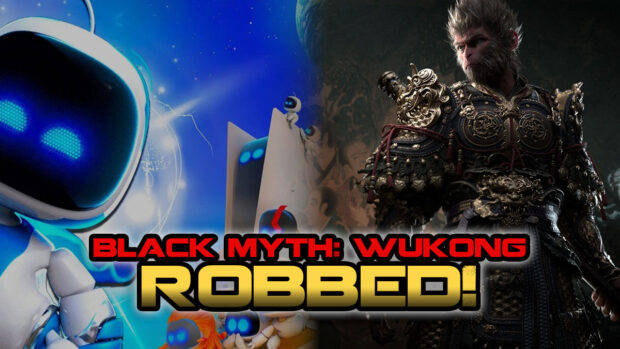
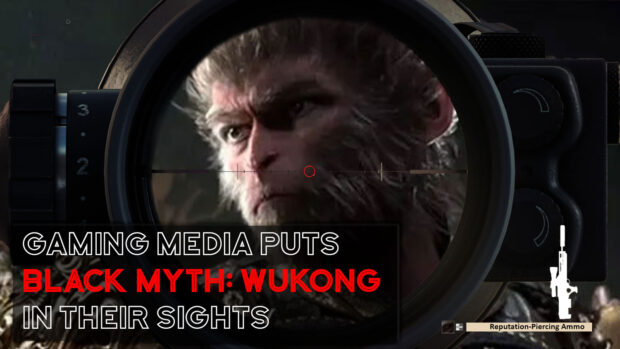




Shane
January 17, 2025
That’s pretty messed up tbh but a lot of places like these are just on life support at this point anyways
Ayefkay
January 18, 2025
Yeah, I saw this stuff going on this morning and just wanted to write about it to give Smash JT the credit he deserves. Glad you liked it at least and thanks for stopping by!
ApoDingo
January 18, 2025
to be honest, jt and kern are just as bad as the rest of media. The only difference is they wear their agenda on their sleeves. The lady leaves bioware for a new job, and they immediately are talking about it like she got fired and bioware closing down in a month. We got no hope of having g a neutral media at this point.
Ayefkay
January 18, 2025
I mean, I don’t consider JT or Grummz “bad”, but I think you mean that they strongly push their own beliefs and I’ll agree to that. I can’t claim to be impartial myself either, but I did make this site because I was tired of how the media kept spinning news and pushing their agenda – despite what the players and gaming statistics were saying. Are we ever going to have neutral media? Hell no, it’s just not possible. BUT I hope that we can have enough places cover the same things that people can come up with their own beliefs based on the cold, hard facts. The facts of this matter, is that Smash and Kern did break the story. No question. And Grubb not only refusing to give them credit, but him and other legacy media outlets perpetuating the lie that HE broke the story is nothing short of the lack of any semblance of journalistic integrity.
Regardless, hope you found the story good – even if the subject wasn’t exactly to your liking and thanks for stopping by!
Your Mom
January 19, 2025
I saw Hypnotic talking about this and Grubb seems like an ass.
Ayefkay
January 20, 2025
Lol I was actually in that live stream too just for funsies – Repent!